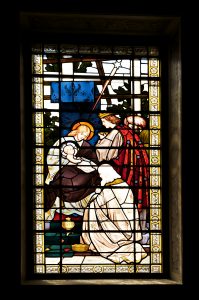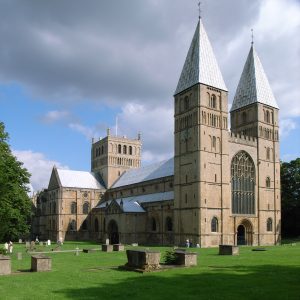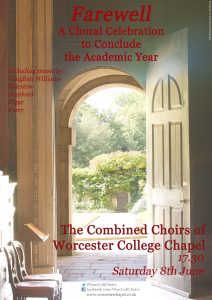REMEMBRANCE SUNDAY 2013
Worchester College Oxford
The Venerable Ray Pentland CB QHC
Isaiah 55: 1-5 – Hope for the future, and John 15: 12-17, Greater love
Introduction
There are few sounds more evocative than this, the of the chilling sound of a trench whistle breaking the silence that was the prelude to a generation of young men leaving their trenches,
going over the top and becoming engulfed in the storm of war, many of whom would never return
home.
Joolz Denby a British Poet asked to write some words for a new war memorial, penned the
Stanza
Read their names, and call them home
Chant the litany of remembrance.
And I believe that in a real sense that is what we are about today when we gather to Worship and
remember and to reflect, and as we do so I suggest that we are engaged in three activities,
first of all we commemorate the past, we consider the present and we make a
commitment for the future.
1. Commemorate the past
Tomorrow I will stand at the Cenotaph, that iconic symbol of our nations remembrance and
observe the 2 minutes silence at 1100 on the 11 day of the 11 month. A few days ago I had
the opportunity, to walk through the Field of remembrance at Westminster Abbey. It is all too
easy to think of the vast numbers of those who gave their lives in the wars that we might have
life. And yet as I walked through the gardens and stopped quietly to look at the small crosses
with their poppies and messages.
One simply said Granddad 1915, another a photograph of a young boy, John, aged 16 died Flanders, 1917.
Soon I passed by Names I recognised, Phil a young man in his 20’s, the message, – never
forgotten – love Mum and Dad.
It made no difference, Flanders fields or almost a hundred years later, a different land, a
different war, but still simply a soldier doing his duty, seeking to bring freedom to an oppressed
land, and so row upon row the names continued, from 99 years ago to 9 days ago.
Read their names and bring them home
Chant the litany of remembrance.
As I stood I was challenged to remember that though the names may be Legion, each one was
a unique individual, a son, a daughter, a husband a wife, a father, a mother, ordinary
everyday people, who in doing their duty gave their life that we might live. And as we
commemorate the past, as we read their names and call them home, let us remember them,
vibrant and full of life…,
And as we do so we give thanks to God for their sacrifice and for our freedom, and remember
that generation after generation has stood against the invasion of our homeland, and
fought against the evils of dictatorships or terrorism far from home.
And so as we pause to
Read their names and bring home
Chant the litany of remembrance.
2 Consider the Present
Part of remembrance is to consider our response to their sacrifice,
Remembrance must be more than an act of worship and some silence once a year. Indeed
for the members of our Armed Forces remembrance is not an annual event, but rather
a fact of everyday life.
To honour their sacrifice, is to live life to the full, It is to set high standards and work for a better
world. Those who have not been there cannot imagine
what is experienced on the front line, whether the trenches of the Somme or the hills of
Afghanistan, but perhaps a warrior from another generation captures something of their feelings.
Lt Gen Hal Moore in ‘We Were Soldiers Once and Young’ writes,
‘We went to war because it was our duty. That is
one kind of love. Another and far more
transcendent love came to us unbidden on the
battlefields as it does on every battlefield man
has ever fought. We discovered in that
depressing, hellish place, where death was our
constant companion, that we loved each other.
We killed for each other, we died for each other,
and we wept for each other. And in time we
came to love each other as brothers. In battle
our world shrank to the man on our left and the
man on our right and the enemy all around. We
held each other’s lives in our hands, and we
learned to share our fears, our hopes, our
dreams, as readily as we shared what little else
good came our way.’
They learned the gospel truth in the words of Jesus, that Greater love has
no one than to lay down his life for another. So,
Read their names and bring home
Chant the litany of remembrance
Sacrifice is not a word often heard today, but without it we would not be here. It is the sacrifice
of youth and potential that we remember. Experience informs us that sacrifice is a remedy
for selfishness and is an important part of maturity. We live in an age when we want
everything today – often without responsibility or cost, where the greatest achievement is to
become a celebrity of a few moments of infamy on X factor, and yet as we gather here there are
young men and women of our nation still serving
in danger, putting their lives on the line. There are many stories of heroism from our current
conflicts but one will suffice.
Corporal David Hayden of the Royal Air Force Regiment became the first airman to receive the
Military Cross. This is his story.
When one of his colleagues, Leading Aircraftsman Martin Beard, was fatally wounded,
Cpl Hayden was not prepared simply to give up on him. Against all odds he went out under
heavy fire and hoisted the injured man on to his shoulder and ran, upright, another 200 yards
across many obstacles to safety. Then he went onto rescue the rest of his section.
Cpl Hayden citation read that ‘he showed the most outstanding courage, selflessness and
personal example, risking his life repeatedly with absolute disregard for his own safety’. He said ‘I
am what the RAF has made me’ I was only doing my job – ‘
This is an example of service and sacrifice in the finest traditions of our Armed Forces, but there is
more, for our scripture reading reminds us that these are the words of Jesus, and that He put
His words into action by laying down his life that we might have a new and everlasting
relationship with God our heavenly Father and so this morning as we commemorate the past
and consider the present, let us take time to remember that we have a God who loves us and
who has a different and better purpose for us, and that part of our responsibility is to work
towards that very aim of a better world. Sacrifice, brings its own rewards, of giving rather than
getting, of loving rather than hating, and of caring rather than just not caring. Of standing up and
doing something, speaking up rather than just standing idly by and doing nothing. If we do sit
idly by then we betray those whose lives we commemorate today, as we read their names
and call them home do we honour them by making our world a better place? So what of our
3. Commitment to the future
We live in a world struggling with evils of terrorism in a way we have never known. The
Armed Forces of our nation are called to respond to situations in places previous
generations had forgotten existed.
Our reading from Isaiah 55 offers us both an invitation and a promise. The invitation is to
those who are thirsty and hungry, but not simply in the physical since, rather in the spiritual
sense – and I suggest that this is all of us – we all have a spiritual need, and here we are
invited to find the answers. The writer then offers us a promise. A promise of good things of
a better world, and I can’t imagine that any of us can’t want that, and scripture points us to the
answers and the fulfilment of that promise in Jesus himself, the same Jesus who laid down
his life, the promise that our spiritual needs will be met in Him and that a better world can and
will be ours if we accept the invitation to drink and eat in the kingdom of God. Hope for the
future is opened up, based on faith in the promises of God, and therefore a new and a
better world is not an idle dream -but a matter of faith and love and courage. It is not the
inevitable result of some supposed natural progress of the human race – it is the
consequence of our resolute determination in faith that evil shall not triumph. Today is an
opportunity to remember the sacrifices of those who lost their lives as a result war, to read their
names and bring them home. Since last remembrance Sunday 9 members of our Armed
Force died on duty in Afghanistan 9 families’ whose lives have been turned upside
down, 9 families for whom this remembrance Sunday
has a new meaning, and we the remember hundreds who have
experienced live changing injuries.
They may see it as their duty and service. We may not agree with the whys or even the how.
However this is part of the price of living in a democracy.
From the trenches of the Somme, to the Roar of Spitfires over our island home, from guarding
our coast to the battle of the Atlantic, from the beaches of Normandy to the South Atlantic,
from the flight of the Dambusters to Kuwait, Bosnia, Kosovo, Iraq to Afghanistan, and many other places the men and women of our Royal Navy, Army and the Royal Air Force represent you and me.
We must never forget, and we should be give thanks for their commitment to our future.
For today is also about
The partners who grieve
The injured who suffer
The families who struggle
The veterans who remember
The aircrew who fly
The children who wait
The homeless who shiver
The seamen who sail
The unemployed who despair
The soldiers who fight
The disabled who strive
The heroes who serve.
Today we will pray for them,
Today we will remember them
Today we will
Read their names and call them home chant
the litany of remembrance
 The chapel celebrates the coming of Christmas and the ending of the University term during events this week.
The chapel celebrates the coming of Christmas and the ending of the University term during events this week.

![Broughton Poster FINAL[3]](http://worcesterchapel.org/wp-content/uploads/2013/06/Broughton-Poster-FINAL3-212x300.png)
